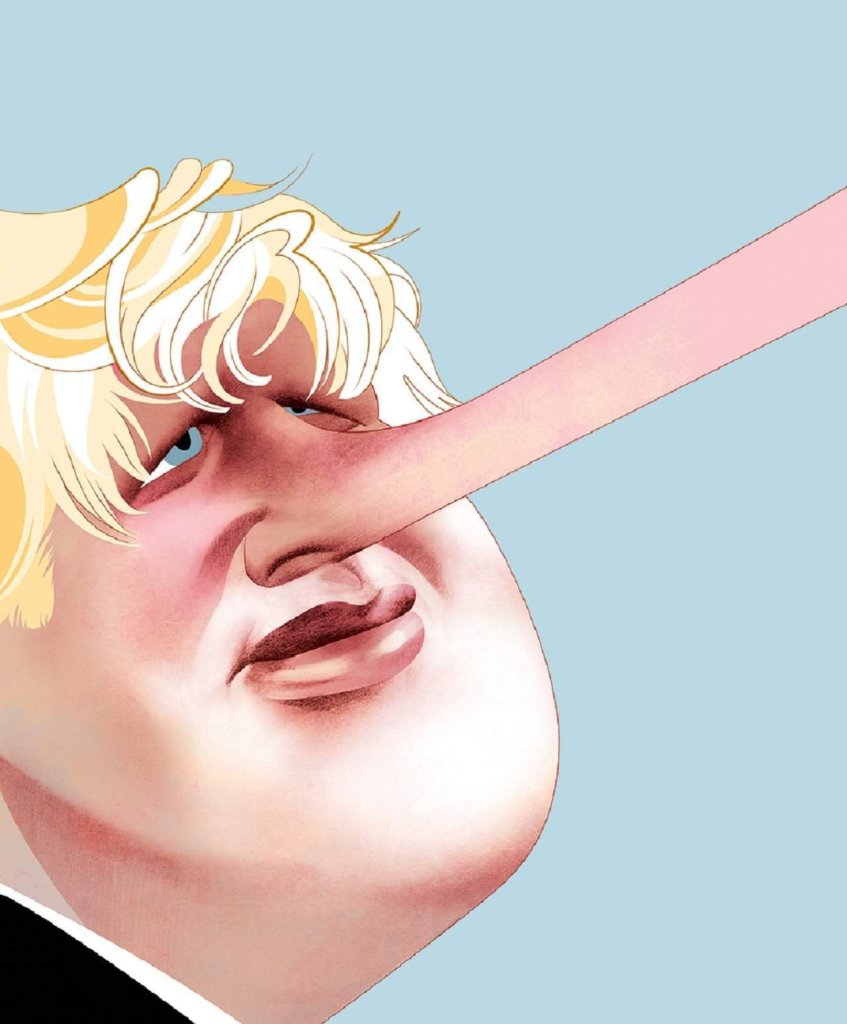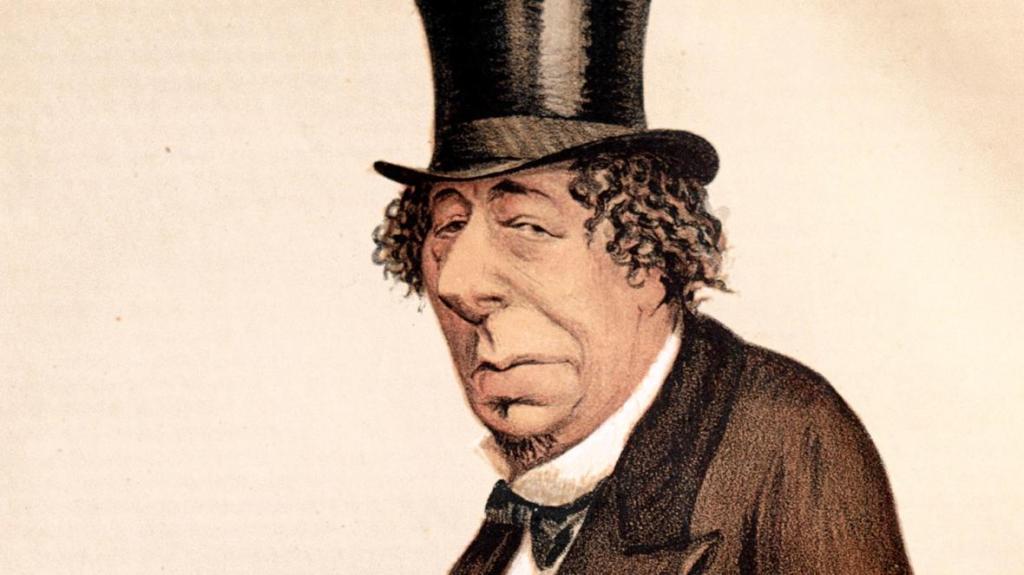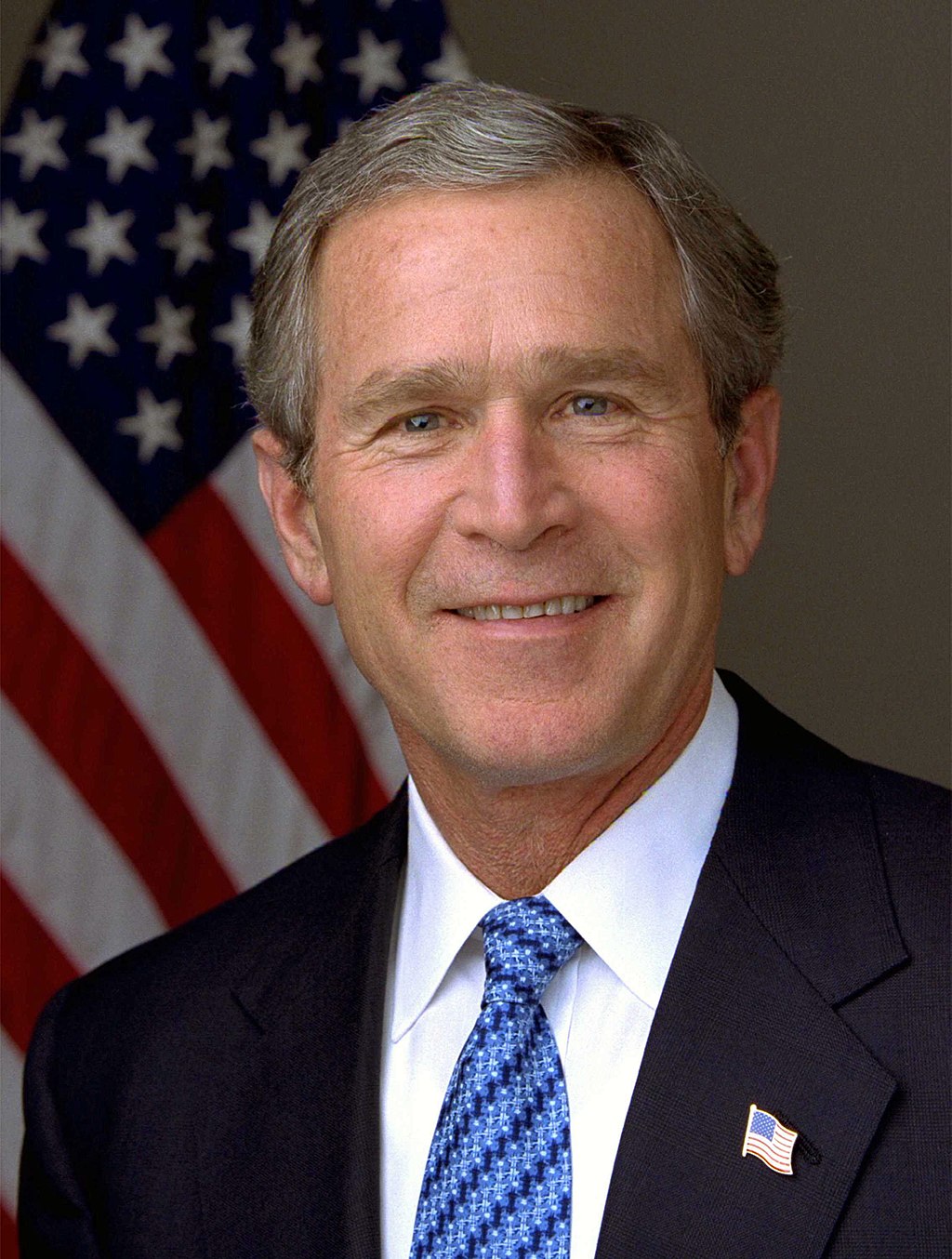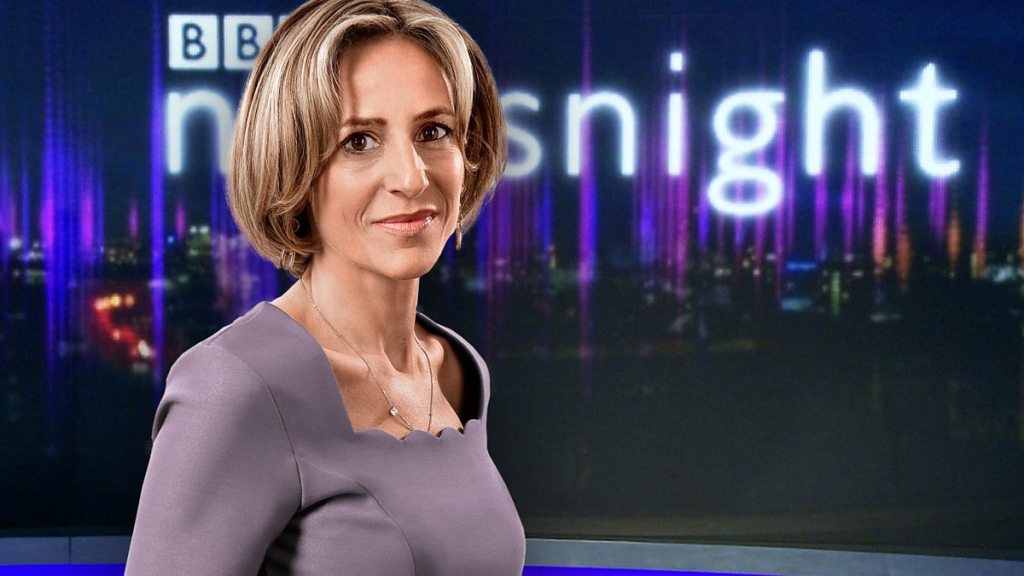
From the mendacious claim about Brexit rebating £350 million a week to the NHS in the 2016 referendum, no sentient being has turned to Boris Johnson for the truth. Their votes are more likely to have referenced his appearances on the BBC’s Have I Got News For You than his relatively rare appearances at the London Assembly when its Mayor, or in the Commons when previously MP for Henley. Many will know he was fired for lying by the Times over allegations he fabricated a quote from his godfather, the historian Colin Lucas, for a front-page article about the discovery of Edward II’s Rose Palace. He then took a job as Brussels correspondent of the Telegraph, where he distinguished himself for inventing stories about the EU’s intention to enforce straight bananas, same-size coffins and ban prawn cocktail crisps. Thus successfully stoking the fires of right-wing Tory Euroscepticism, Michael Howard gave Boris Johnson two new jobs after becoming leader of the Conservatives in 2003 – party vice-chairman and shadow arts minister. He was sacked from both positions in November 2004 after assuring Mr Howard that tabloid reports of his affair with Spectator columnist Petronella Wyatt were false and an “inverted pyramid of piffle”. When the story was found to be true, he refused to resign. ‘Bare-faced liar’ doesn’t begin to cover it.

A recent, unusually sympathetic, article in History Today notes that Johnson is the first prime minister since Baldwin to take a pay cut to take the job. As only the third journalist/writer to take the post, the piece makes the more interesting point that Johnson is more like the first, Disraeli, than his hero Churchill. John Charmley, pro-Vice Chancellor of St Mary’s University, Twickenham, records Disraeli’s lies but writes: “Just as Gladstone accused Disraeli of debauching public life and deplored his habit of playing fast and loose with the truth, so do Boris Johnson’s critics level similar allegations at him; but in both instances the voters seem less concerned.” The public taste for lies is clearly growing, with Trump having shown there is little electoral downside to lying for a living and demonising journalists for telling the truth, branding any inconvenient fact “fake news”. Perhaps the signs were there in the last century, as the US moved from a president forced to resign for lying over Watergate in 1974 to Bill Clinton surviving impeachment in 1998 despite the lie: “I did not have sexual relations with that woman.”





According to Jeffrey Pfeffer, professor of organizational behavior at Stanford University and author of “Leadership BS: Fixing Workplaces and Careers One Truth at a Time,” the average person lies at least twice a day. “Abraham Lincoln, in order to settle the Civil War, was not completely honest about where the Southern delegation was,” he says. “James Clapper, the director of national intelligence, when asked about whether or not national intelligence agencies were intercepting communications from American citizens, didn’t tell the truth, as we learned from Edward Snowden. And, by the way, Mr. Clapper still has his job.” And he also nominates George Bush and Barack Obama for lies which helped, respectively, the Iraq war and Obamacare on their way. A mediumly talented, lazy British writer must have stumbled across such pointers and realised that there is more to be got from spinning elaborate fantasies people want to hear than telling the truth. Which is why we are still being told that the worst handling of the coronavirus in Europe, with the highest death toll by far, is dodgy data obscuring the government’s successful handling. And when the media depart from that fantastical narrative, they don’t like it.

Emily Maitlis on Newsnight: “Dominic Cummings broke the rules – the country can see that and it’s shocked the government cannot….The longer ministers and the prime minister insist he worked within them, the more likely the angry response to the scandal is likely to be … He made those who struggled to keep to the rules feel like fools, and has allowed many more to assume they can flout them.” Talking of Johnson’s “blind loyalty” in the face of plummeting poll ratings, she expressed bafflement: “The prime minister knows all this and has chosen to ignore it.’ These self-evident truths produced an outpouring of bile from the government, causing the BBC to condemn Maitlis out of hand and her to step down from the Newsnight chair for the following day’s programme. Fortunately she has not (yet) lost her job over this departure from the newly craven convention of balance – always match a truth with a lie, especially if that lie happens to be the view of the government of the day – a trivial binary I encountered when first working for the BBC World Service in 1971, and which many of us spent a lifetime working to replace with a more adult, nuanced form of journalism, largely reversed by a BBC cowed and risk averse since the Hutton inquiry.

There are optimists who believe that the Tories’ systemic attack on the independence of the BBC – decriminalising licence fee evasion and threatening its ending; boycotting programmes like Today which dare to scrutinise government policy – will disappear following the popular support shown its coverage during the pandemic. I suspect the opposite, as government popularity has tumbled since the Cummings scandal and the escalating death toll have rattled them and thrown Johnson back on a Trumpish bluster. “I’m very proud of our record. If you look at what we have achieved so far, it is very considerable” he protested at last week’s Prime Minister’s Questions, as the UK passed the 40,000 death toll which is the worst in Europe. He turned on the leader of the Opposition, Sir Keir Starmer, for daring to question the judgement of relaxing lockdown measures as the government’s own warning level remained at four, a level which they had previously indicated could not justify relaxation, and the shambolic testing and tracing programme. Starmer pointed out that his question was scrutiny, not attack, though anyone who has faced a wounded animal knows, they tend not to dwell on such fine distinctions. Just as there is a clear line between Trump’s years of vilifying the media for challenging him and the police there now targeting and wounding journalists, we can expect a cynical escalation of stand-off between this severely damaged government and any independent journalistic inquiry.

Indeed, it is precisely because Johnson has experience of the power of the media, having trousered significant income from its use and abuse, that he will undoubtedly work to emasculate it. Less well-known than his fictions from Brussels are that his claims to learning are as well-founded as the powers of the Wizard of Oz. He published a lamentable tome on his hero Winston Churchill in 2015, as part of his long-term PR strategy to gain the Tory leadership. As the few informed reviewers noted, it is a tissue of lies. In the New Statesman, Richard Evans, Regius Professor of History at Cambridge, notes that Johnson claims Churchill
“invented the RAF and the tank”. ‘Anyone who has the time or energy to press a couple of keys on a computer to look up “tank”, “RAF”, “welfare state” or even “the Second World War” on Wikipedia will see Boris’s sweeping claims vanish in a cloud of inconvenient facts. Churchill did not, as Boris claims, invent the term “Iron Curtain” to describe the barrier between Soviet-dominated Europe and western Europe. It was first used by the Nazis – above all, by their propaganda minister Joseph Goebbels. Nor did he invent the term “Middle East”’ –
and so on and so on. ‘It’s like being cornered in the Drones Club and harangued for hours by Bertie Wooster’, comments Evans. Or, as Barbara Ellen noted in The Observer, explaining why the Tories were desperate to get their braying hordes back in the Commons chamber, without which Johnson stands naked: ‘horribly exposed for what he is: an overgrown schoolboy who’s spent a lifetime not being arsed to do his homework’.
Before the internet made information instantly accessible to all, journalists relied upon cuttings libraries, where assiduous researchers painstakingly cut items out of newspapers and catalogued them for future reference. Not only written and broadcast features would rely heavily on this invaluable resource; whole books by well-known journalists are identifiable as ‘cuttings jobs’, though now they are ‘Google jobs’. A variant was where an over-paid scribe or presenter relied on researchers hired by the production company and then appropriated the work as their own in spin-off publications. You might descry a pattern here and you would be right. It chimes with the whole populist project of spotting a trend, fuelling the flames, and then coasting the updraft created. Remember that Johnson wrote two contradictory articles on Brexit before, correctly, deciding which side his bread was buttered on. It is only a matter of time before that ‘considerable achievement’ will morph into a Trumpian “We won the war” -and those who question that will be branded purveyors of “fake news” and traitors. We need the calm scepticism that the Washington Post has brought to this new culture of mendacity, with its scrupulous Fact Checker charting the Trump Presidency:
In 1,226 days, President Trump has
made 19,128 false or misleading claims
including ““We had the greatest economy in history of any country, not just ours. The greatest in history.”
While there is no doubt that modern technology – the internet, social media and the atomising effect of the mobile phone – is the prime means by which lies became the dominant trend, there has to be more to this and, particularly, why they have such traction in the Anglo-Saxon countries. Twitter has taken the lead in pinning a public health warning to some of Trump’s tweets, and even libertarian Mark Zuckerburg is coming under pressure from his own Facebook staff, yet it is not just the perpetrators at fault, but the public thirst for such modern myths. Reviewing the new complete Penguin edition in English of George Simenon’s work in The London Review of Books, John Lanchester seems to have put his finger on it, that we are reared as two-dimensional gulls, on the simplistic assumption of good and evil.
‘The main current of the English novel is in the direction of Happy Ever After, along the lines of Miss Prism’s deathless observation: ‘The good ended happily and the bad unhappily. That is what fiction means.’ When you turn from that tradition to the work of Laclos, Flaubert, Balzac, Stendhal, Maupassant and Proust, it’s like getting a glass of ice water in the face. Everybody lies all the time; codes of honour are mainly a delusion and will get you into serious trouble; the same goes for love; if you think the world is how it is described in consoling fictions, you have many catastrophic surprises in store. Above all, the central lesson of the French tradition is that people’s motives are sex and money, and you can write about those things as sex and money, directly, no euphemisms required.’
Johnson has had more than his fair share of both, but his current power is what he has spent a lifetime craving, only to be shown startlingly inept, an emperor with no clothes. As a final coda: the old saw ‘lies, damned lies and statistics’ is always erroneously attributed to Disraeli, as it was originally by Mark Twain, some years after Disraeli’s death. Twain – pro-revolutionary, anti-vivisectionist, etc. – was obviously a good egg. ‘If you tell the truth, you don’t have to remember anything’ was one of his apopthegms. Johnson and Trump forgot the first part. Twain also noted the mythic origin of much untruth.

